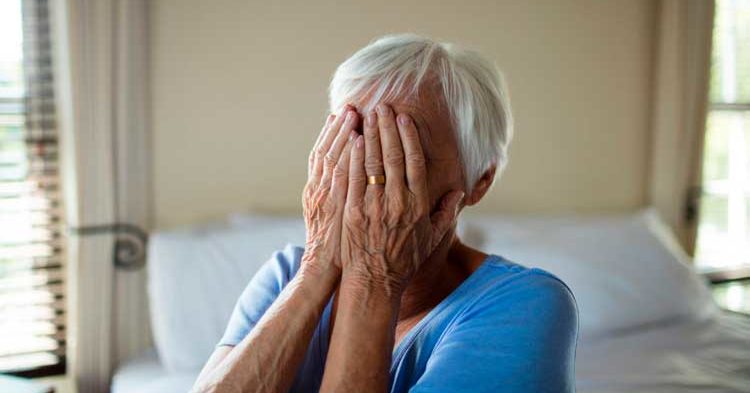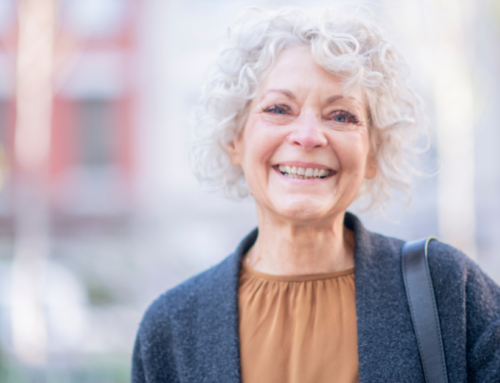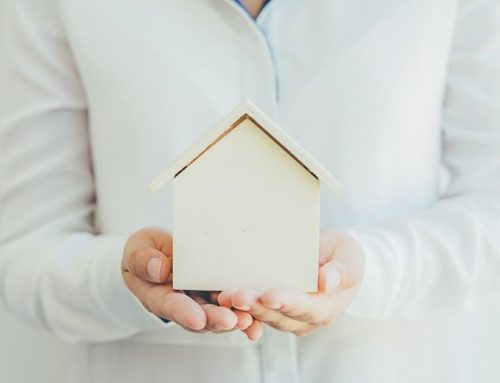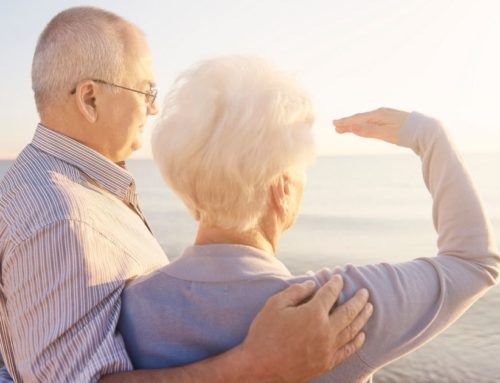Popular imagery of life after retirement depicts the elderly living as a carefree period of life. This leads many people to underestimate the degree of stress that can easily manifest in many aspects of life for older adults. Even without the responsibilities of working or supporting a family, seniors are just as susceptible to stress, if not more so, than the rest of the population. In fact, there are many circumstances often unique to senior citizens that make them more prone to ongoing anxiety, stress, and depression.
If you act as a caregiver for an older individual, or if you are a senior yourself, you may want to develop a greater awareness of the causes and approaches to stress in older adult life.
Causes of Stress in Elderly
A variety of stressors can affect seniors much more frequently and intensely than other people. The most common sources of anxiety for the elderly include health, finances, and social life. In reality, all of these issues greatly tie into each other, as diminishing physical capability in old age can threaten both physical and psychological wellness, financial security, and one’s relationship with others.
Financial Insecurity
Living costs tend to increase with age–a statement probably unsurprising to most. Thinking about increased health care needs, payments for medications, surgeries, and procedures, as well as costs for caregiving and daily assistance account for a long list of financial needs in old age. Even with a retirement fund, unexpected changes can dent savings and cause panic. In addition, it is easy to become overwhelmed when considering payment and debt options, and the concern of being taken advantage of by credit or mortgage companies can cause fear for both seniors and their families.
It is important to acknowledge the potential stressors regarding finances for elderly and retired individuals. Having foresight with this issue before it is too late can help seniors to experience less concern over living costs and the future status of their finances.
Decreasing Sense of Independence
The increasing health needs that come with age also bring the distressing impacts of sometimes drastic lifestyle changes. Often times the most upsetting experience in old age is an increased lack of independence as mobility decreases. Losing one’s independence can often feel like a threat. Older adults may experience the sudden inability to drive, complete household chores such as cooking and cleaning, and in general need extra help in completing tasks that they once used to perform with ease. If you provide care for a senior who may be experiencing some of these shifts in lifestyle, maintaining sensitivity towards their situation can help reduce stress. It is easy to become frustrated by a “stubborn” patient or loved one who is resisting help, but remaining calm and avoiding argument will help avoid unnecessary stress.
Increasing Health Concerns
A growing reliance on others can also lead someone to feeling like a burden. People with growing health concerns tend to worry about whether their own wellbeing is hurting their loved ones, either financially, physically, or emotionally. As an elderly caretaker, it is important to remain supportive of your senior patient or loved one. It is not always necessary to verbally remind them that you want to help them, but acting with patience and understanding will reassure them that the service you provide them is voluntary and that they deserve it.
If you are on the other side of this as an older individual struggling to embrace assistance, it may feel impossible to come to terms with a changing lifestyle, but you can work to alleviate negative emotions surrounding this. You may want to seek out a support group with other elderly members of your community. Finding a place where you can express your frustrations towards your situation can help to work through your emotions and prevent built up stress.
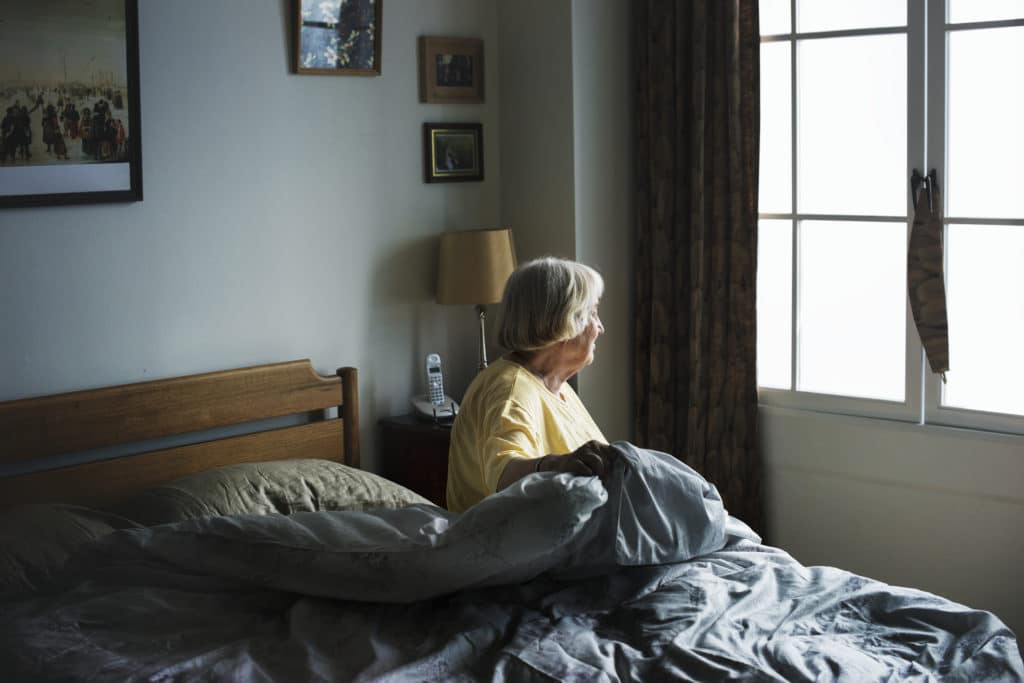
Isolation and Loneliness
Many seniors also struggle with a feeling of isolation and loneliness that can have a negative effect on their wellbeing. As an aging individual experiences lessened mobility, they may feel more physically bound to one place and because of this avoid attempts at socializing. Providing seniors with the aid they might need to get around can help them feel more optimistic about spending time with others. Visit New Wave Home Care to find out about the various caregiving options that can help assist with transportation.
Loss of Loved Ones
The loss of friends and loved ones can also lead to an intense feeling of loneliness. In old age it is far more common to experience the death of a spouse, sibling, or friend. It may feel impossible to properly console an elderly person who has experienced the loss of many people close to them in a short period of time. Often, it may not feel like you have the proper words to offer up for support. Simply being present and spending time with an elderly person, however, can greatly help them to feel less isolated.
In a New York Times article, Paula Span explains that working to better understand this feeling of persistent loss can help you to better offer support. A senior may experience more deaths at their age, but this frequency does not make it any less common or illegitimate to feel distraught or alone. Validation of the feeling of loss, rather than an attempt to underplay it, can greatly help in the grieving process.
Physical Impacts of Stress
Managing the various causes of stress common in elderly life can also have great positive impacts on physical wellbeing. Emotional and psychological health concerns such as stress, anxiety, and depression are commonly known to have physical implications. Many people who suffer from these disorders deal with unhealthy eating habits, a decrease in activity levels, trouble sleeping, and a variety of related issues. Especially in the elderly, high levels of stress can make individuals more susceptible to illness.
Effects of Chronic Stress
Seniors who experience chronic stress are at a higher risk for heart and blood pressure problems, poor digestion, and a weakened immune system. Chronic stress leads to long-term adrenaline in the body, which can have a more intense physical impact on seniors. For instance, the “sick to the stomach” feeling that many individuals experience when they are anxious or stressed out can have more rapid and severe effects on the elderly, as retaining nutrients and maintaining a healthy weight already becomes more difficult with age.
Issues common to elderly health, such as vision and hearing impairment, trouble breathing, and dental deterioration, also become more likely when chronic stress is added to the mix. Constricted blood vessels from an increased amount of adrenaline can impair hearing and vision, as well as inhibit steady respiration. The common tendency to clench one’s jaw when anxious or stressed also poses a greater threat to the elderly as teeth become more brittle and subject to fractures and decay. That well known feeling of tense muscles and a queasy stomach which can indicate stress can make anyone feel ill, so it is important to be aware of reducing stress for senior individuals who may be extra vulnerable to its ill effects.
Solutions for Stress Management
Common recommendations for managing stress include healthy eating, exercise, partaking in a hobby, and mindfulness or meditation. Unfortunately, some of these suggestions are inaccessible for elderly members of society. For example, increasing activity levels often does not serve as a sustainable option for seniors with handicaps or a decrease in mobility. However, with some adaptations, older adults can still participate in stress management activities that can lead to a happier, healthier life.
Adapt Exercise and Hobbies to Their Current Abilities
Those incapable of typical exercises such as running, walking, or using gym equipment can participate in seated exercise classes, which they can join classes for or easily access online such as with this youtube video.
Some seniors may feel discouraged that a favorite hobby of the past is no longer accessible to them due to changes in their agility. Adapting hobbies to better suit one’s physical needs can help return joy and excitement to these activities, which can greatly increase wellbeing. For instance, someone who previously enjoyed knitting and now experiences difficulty maneuvering their hands to complete the activity may want to invest in an adapted knitting loom which allows for a more simple hand motion.
It may help a senior individual to have someone with confidence on computer use to help them find these resources. They can help them search for online sites which provide adaptable options for senior hobbies.
Consider Mindfulness Activities
Another promising option to consider is partaking in meditation. Many people are hesitant to participate in mindfulness activities such as meditation, but the benefits can be shockingly extensive. Most public facilities such as senior centers and even libraries offer free weekly meditation classes. If you live in a senior living community, meditation classes or physically adaptive yoga classes are often easy to come by. Participating in these activities may seem uncomfortable at first, but seniors who stick with classes like this enjoy great health benefits over time, such as a healthier heart and increased focus and energy levels.
Considering the many sources of stress in elderly life may feel discouraging. Either if you are an older adult yourself or someone caring for a senior you may feel like succumbing to the unavoidable factors of older life. However, it is important to acknowledge the many approaches that can help reduce stress and lead to a better mental and physical well being. While the threat of health issues, financial requirements, or the loss of older friends may very well remain inevitable in senior life, proper support and stress management can prevent these experiences from causing stress levels to spiral out of control. Overall, it is important to remain open minded, and create an environment in which a potentially stressed out senior can feel properly supported, respected, and facilitated in their attempt at a healthier lifestyle.
